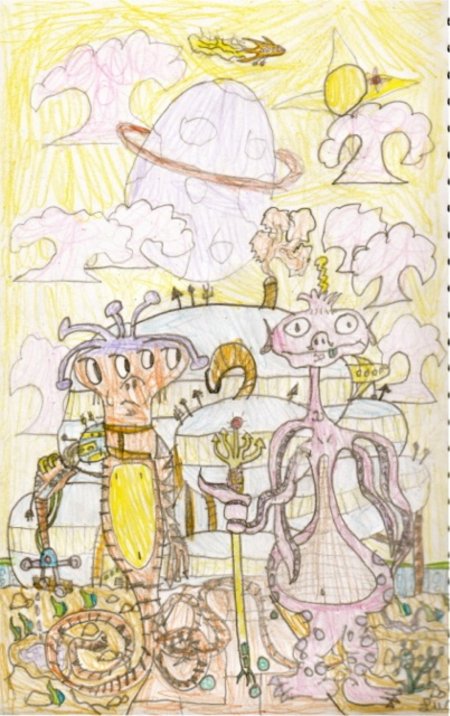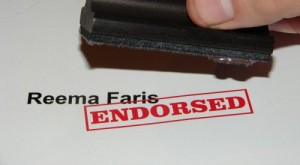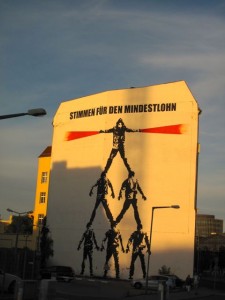Posts Tagged ‘questions’
Do I Want To Know?
Ignorance is bliss.
Or so they say.
And as we hurtle through the German countryside, on this train voyage from Berlin to Frankfurt, on the last leg of our summer adventure abroad, I believe it may be true.
Throughout this trip, I’ve had access to wireless connections and have checked my email regularly, followed Facebook postings and Twitter messages, but not to the same extent I do at home.
I haven’t read the newspaper each morning, I haven’t listened to broadcast news, and I haven’t been voraciously consuming the ups and downs of world events, whether trivial or significant. It helps that many of our accommodation spots have not provided access to a television or that we’ve been too busy exploring to watch.
So while I’ve been connected, I haven’t been obsessed and that’s opened room in my thoughts and daily experience to a stronger sense of well-being.
Which is an odd place to be for someone who is an advocate of digesting information regularly, of learning, of being aware that the world is so much more than our immediate circles of influence.
So if ignorance is bliss, why bother with education?
In thinking about this question, I realize how value-laden the field of education is as is the contemplation of what constitutes the qualities of our existence as social beings.
We talk about believing in better, but what’s better?
We talk about the value of knowledge, but what is knowledge?
We talk about leading good lives, but what constitutes a good life?
In addition, as I contemplate the historical record (traveling in Europe seems to make history somehow more real and pressing), I realize that crimes and atrocities, throughout the centuries and in our own day, are or have been committed by well-educated people.
Education has not acted as a barrier to tragedy, war, deprivation, suffering, inequality, and injustice.
And while I have a feeling the key is to keep asking questions rather than settling on fixed answers, there is one conclusion I feel able to draw with some certainty.
The most important result of education is to enable people to become and to be critical thinkers. And while the search for consensus may be integral to making progressive changes (what is progress? why change?), individual voices are needed now more than ever as is tolerance for different points of view.
And that’s a troubling aspect of political life in Canada and elsewhere along with the evolution of our mainstream media systems. It seems the goal is to manipulate citizens into thinking en masse by removing dissension and erasing individuality.
I can’t help feeling that we should – at this point in time and with the lessons of history – know better.
Ignorance may be bliss, but, as my nephew says (he’s recently graduated from the University of Bradford Peace Studies Department) “blissed” ignorance is not just.
Perhaps that’s the ultimate purpose of education then: to establish, maintain, and sustain just societies.
If so, let’s get on with it.
The Arts In Education – For A Better World
What a relief! Mark Mercer’s article in this morning’s newspaper reiterated that “universities are about education, about learning for the sake of learning” and that “university done rightly is great preparation for life”.
This was a welcome contrast to Margaret Wente’s recent diatribe against the Occupy protesters. With a swipe of her pen, she denigrates the value of the humanities. She seemingly fails to recognize that there are likely as many mechanical engineers out of work today as there are sociology students trying to find their way in life.
The business challenges we face and the deficiency in employment opportunities for young adults is not due to the educations they pursue; rather it reflects the reality of the structural weaknesses and flaws in our economies and societies.
And while we struggle to address these serious questions, as educators we need to ensure that we don’t lose sight of the value of the humanities in education and the value of the arts in our students lives.
 When I walk down the hallways at my son’s school, I’m always struck by the amazing artwork the students produce: artwork directly related to the curriculum, the topics they are studying, and their learning. A lot does get done and I think that a lot more needs to be done to without imposing a further burden of delivery on teachers.
When I walk down the hallways at my son’s school, I’m always struck by the amazing artwork the students produce: artwork directly related to the curriculum, the topics they are studying, and their learning. A lot does get done and I think that a lot more needs to be done to without imposing a further burden of delivery on teachers.
What if in-residence programs were implemented? For example, what if a published author served as writer-in-residence for the district? We have great visual artists on the North Shore — why can’t we look at having them conduct classes or organize field trips to their home studios throughout the year? Why can’t a professional dancer come in on an extended basis, once a week, to help choreograph a holiday show? Could we organize visits to Sinfonia’s (the North Shore’s professional orchestra) rehearsals? Why isn’t it automatically on the calendar every September and October for classes to take in sessions offered during the Vancouver International Writers Festival or Vancouver International Film Festival?
Some schools may be pursuing these sorts of projects and some schools aren’t. These type of initiatives, in my mind, would compliment teachers’ efforts and would be most viable in conjunction with greater support for specialist teachers (music, art, drama, dance, etc.) already hard at work. I also see that such programs would be most economically effective if delivered on a resource-sharing model between the district, the schools, and the Parent Advisory Councils (PACs).
I’m not advocating a specific approach or model because I don’t have all the information necessary to say which one will work the best. What I do know is that there is room to do more, much more. And we must do more because the arts, to me, are integral to the human experience and our children’s learning will be enhanced if art is more fully-integrated in their daily routines as a central component rather than as simply an adjunct.
I agree with Martha C. Nussbaum who writes in her 2010 book Not For Profit – Why Democracy Needs the Humanities:
“If we do not insist on the crucial importance of the humanities and the arts, they will drop away, because they do not make money. They only do what is much more precious than that, make a world that is worth living in, people who are able to see other human beings as full people, with thoughts and feelings of their own that deserve respect and empathy, and nations that are able to overcome fear and suspicion in favor of sympathetic and reasoned debate.”
I think there’s room to dispute her contention that the arts do not make money (look at this recent article by John Doyle on the profits made by private television broadcasters), but the point is that there is inherent value in the arts and humanities which we risk losing in a world solely focused on measurable utility and on money.
And isn’t that the ultimate purpose of education, as Nussbaum says, to “make a world that is worth living in, people who are able to see other human beings as full people”?
So let’s do that. Let’s make sure that our curricula do not sacrifice the arts. Let’s not make this a lesser world, but a better one.
Questioning Questions
I’m a big fan of questions. I’m sure that I could find a question to pose about almost any topic or situation, often to the annoyance of family members.
This ability to ask questions is what underpins our ability to be critical thinkers and critical thinking is being pinpointed, more and more, as an essential skill for students.
In political campaigns, questions are fundamental in the research we do to get to know our candidates in order to formulate our voting decision. Asking questions is key, I think, to a healthy democratic process. That’s why there’s such an outcry when we sense our ability to ask questions is being curtailed or when answers seem to be so scripted that they don’t sound sincere.
In my community, the West Vancouver Citizens for Good Government (WVCGG) is a group of citizen-voters which makes recommendations to the public on which candidates they feel would best-serve and represent the community in the role of municipal councillor or school trustee.
Their process is extensive: those candidates who opt to seek endorsement are interviewed by WVCGG executive members and the group also hosts a public All Candidates Meeting (ACM). A general meeting is held a week after the ACM where, after speeches from candidates, the WVCGG executive presents their endorsement recommendations. The members then cast their votes on which candidates they feel the organization should endorse.
At the October 27 endorsement meeting, I was very gratified when the WVCGG’s members voted to endorse my candidacy.

In my interview with the WVCGG executive, there were 12 questioners representing a broad cross-section of West Vancouver residents. Each question was posed by a different panelist, and the questions were spot on — they addressed some of the general issues in education as well as those which pertained only to West Vancouver.
It was a job interview with appropriately targeted questions. In contrast to the WVCGG’s job interview, The Vancouver Sun (the Sun), as part of their municipal candidates’ survey, asked a number of questions which I found disconcerting.
The Sun’s online survey featured a series of drop-down menus. While this may be the most efficient way of collecting data, I found the questions posed regarding ethnic background, religion, and birth country unacceptable.
Candidates should be judged on the basis of the stance they take on issues — not on whether or not they were born in Canada, for example. I feel that if the Sun wanted to identify areas where the political representatives do not reflect in one way or another the residents of their communities (as an editor at the paper indicated to me), then they should assign their reporters to investigate the matter and to file their stories accordingly.
The other rebuttal I received when I raised my concerns was that the questions asked were similar to those asked on the census. To me, that’s entirely different: census information is private, presented in the aggregate, and collecting the information is an officially sanctioned government initiative.
The Sun, by profiling candidates in their database based on elements such as ethnicity, religion, and place of birth, creates the impression in voters’ minds that these are factors upon which candidates should be judged. I don’t believe that’s true. If a voter, for example, were concerned about the religious bias of a candidate and how that might influence their action on an issue, the best way to ascertain that is by asking the candidate a question. We cannot assume that having candidates merely identify themselves as a member of a particular religion will tell us what their position or view is on a topic.
A candidate’s merit rests on their opinions, their experience, and their vision, not on the designation with which they may be labelled.
I urge all voters to take advantage of opportunities to meet their local candidates and to use the electronic tools at our disposal to make contact with them. Ask questions, but make sure they are the type of questions which will be of the most value to you in making your decision on election day.
